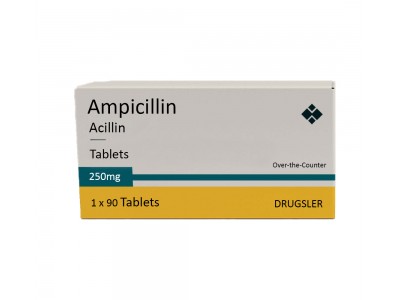What is Ampicillin (Acillin)?
Ampicillin, also known as Acillin, is a broad-spectrum antibiotic used to treat various bacterial infections. It is part of the penicillin class of antibiotics and works by inhibiting the growth of bacteria. One of its primary uses is to treat respiratory infections, such as pneumonia, bronchitis, and other lung-related conditions. In this article, we will explore the effectiveness of
Ampicillin for respiratory infections and its role in treating these common ailments.
How Does Ampicillin Work?
Ampicillin works by attacking the cell walls of bacteria, preventing their reproduction. This action makes it effective against a wide range of bacterial pathogens, including those responsible for respiratory infections. For individuals suffering from lung infections,
Acillin respiratory infection treatment can provide significant relief when prescribed by a healthcare professional.
What Types of Respiratory Infections Can Ampicillin Treat?
Ampicillin is commonly used to treat bacterial infections that affect the respiratory system. These include:
- Pneumonia: A serious infection of the lungs that can cause symptoms like fever, cough, and difficulty breathing. The antibiotic is often prescribed for bacterial pneumonia, particularly when Streptococcus pneumoniae is identified as the cause.
- Bronchitis: An inflammation of the bronchial tubes that can lead to coughing, mucus production, and shortness of breath. In cases of bacterial bronchitis, Ampicillin dosage for pneumonia is commonly prescribed.
- Sinus infections (sinusitis): In cases where the infection is bacterial, Ampicillin can help alleviate symptoms such as facial pain, congestion, and nasal discharge.
- Chest infections: Acillin treatment for chest infections can help relieve symptoms of bacterial chest infections, improving overall respiratory health.
Can Ampicillin Treat Coughs or Common Cold?
While Ampicillin is effective for treating bacterial respiratory infections, it is not suitable for viral infections, such as the common cold. It is essential to understand the distinction between viral and bacterial infections when considering treatment options. For a productive cough or prolonged symptoms, it’s important to consult with a healthcare provider to determine if Ampicillin for respiratory infections is appropriate.
How Effective is Ampicillin for Lung Infections?
Studies have shown that Ampicillin is generally effective for treating bacterial lung infections like pneumonia. However, its efficacy depends on the specific bacteria causing the infection. In some cases, bacteria may be resistant to Ampicillin, requiring alternative treatment options. That said, for non-resistant strains of bacteria,
Ampicillin effectiveness for lung infections is well-documented.
When is Ampicillin Prescribed for Upper Respiratory Infections?
For upper respiratory infections, such as sinusitis and tonsillitis, Ampicillin may be prescribed if a bacterial cause is identified. Infections caused by viruses like the common cold or flu will not benefit from antibiotics like Ampicillin. For conditions such as
Ampicillin and upper respiratory infections, proper diagnosis and testing are crucial for ensuring the appropriate treatment.
Dosage and Administration of Ampicillin
The dosage of Ampicillin varies depending on the infection being treated. For respiratory infections, the typical adult dosage is 250 mg to 500 mg every 6 to 8 hours. It is important to follow the dosage instructions provided by your healthcare provider to avoid complications. Overuse or misuse of antibiotics can contribute to resistance, making
Can Ampicillin treat bronchitis? more complicated if the infection becomes resistant.
Are There Any Risks or Side Effects of Using Ampicillin?
Like all medications, Ampicillin can have side effects. The most common side effects include nausea, diarrhea, and allergic reactions, such as skin rashes. It’s important to consult with a doctor if you experience any severe side effects or have a history of allergies to penicillin. As with any antibiotic, using
Is Ampicillin good for cough treatment? unnecessarily can lead to resistance, reducing its effectiveness over time.
Alternative Treatments for Respiratory Infections
While Ampicillin is effective for bacterial respiratory infections, other antibiotics may be prescribed if the bacteria are resistant to Ampicillin. Alternatives like doxycycline or macrolides may be considered based on the infection’s severity and the results of bacterial cultures. For viral infections, treatments may focus on symptom management rather than antibiotics.
Conclusion
In summary,
Ampicillin for bacterial respiratory infections is a widely used and effective treatment for pneumonia, bronchitis, and other lung infections caused by susceptible bacteria. However, it is important to ensure the infection is bacterial in nature, as Ampicillin will not work for viral infections. Always consult with a healthcare provider for proper diagnosis and treatment, especially when dealing with chest infections or persistent symptoms. For bacterial respiratory infections,
Ampicillin for respiratory infections can be a reliable option when used appropriately.
